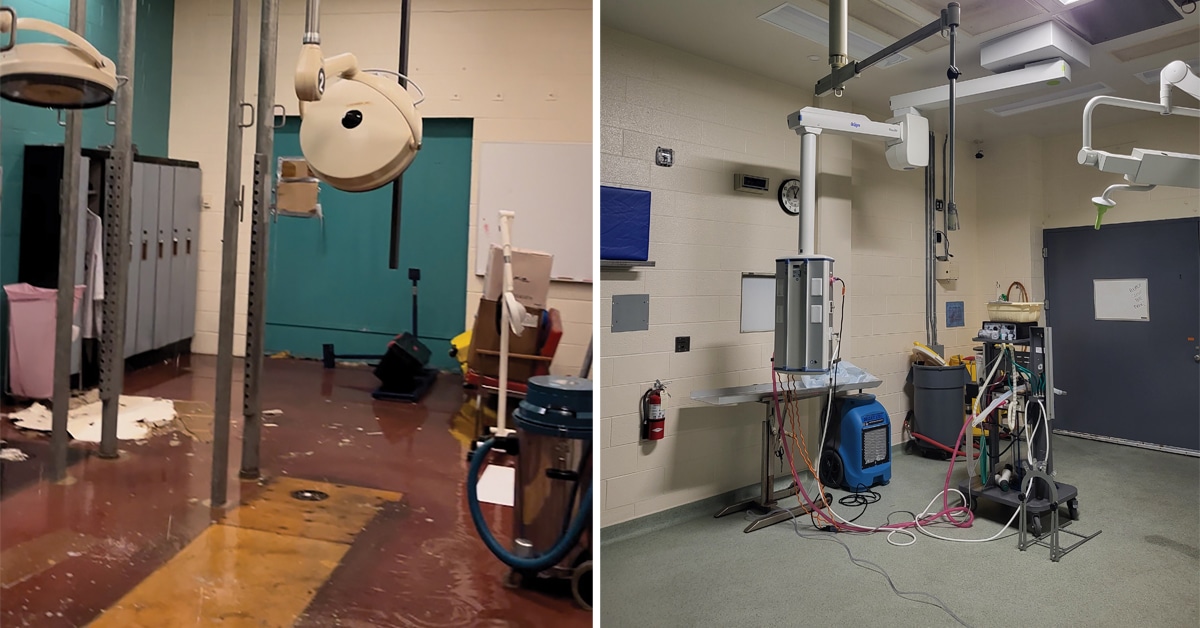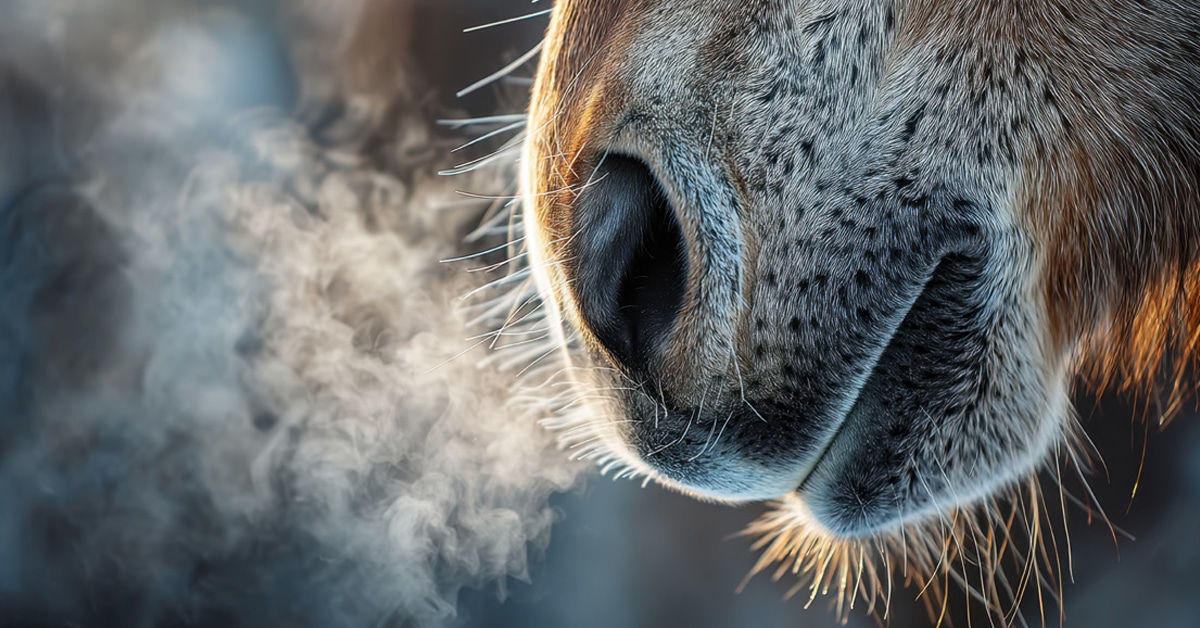Travel is very stressful on horses, especially long-haul ground trips or flights. There is ample evidence to suggest that cortisol (the stress hormone) levels increase with such travel. While there is very little research that has been conducted on the feeding management of horses prior to, during, or following travel, there is significant research on physiologic changes during transport that give insight on how we should feed our horses prior to and during transport.
The physical demands of travel
An increase in cortisol is frequently observed in research examining the effects of travel. Cortisol causes the body to be prepared for ‘flight or fight’ and acts to release blood glucose and counteract insulin (causing insulin to increase with travel), which might be detrimental for horses with metabolic issues. An increase in stress is also associated with gastric ulcers; however, cortisol itself is not usually directly to blame for ulcers in horses. Gastric ulcer development is generally secondary to changes in eating habits – such as in a horse that may go off his feed for a long period of time during transport.
Several studies have reported an increased risk of colic if a horse has been transported within 24 hours. Travel-associated colic is often due to dehydration, which can result in impaction colic. Research has shown that a 24-hour drive results in almost 6% of body weight loss (mostly due to dehydration) – that’s 60 lbs (27 kg) for a 1,000-lb (454 kg) horse!
Another concern with travel is the confined space air quality, which may facilitate disease transmission, particularly respiratory disease. Travel stress may decrease immune function, further putting a horse at risk for disease. It is a good idea to frequently check your horse’s TPR (normal ranges = temperature 37.5-38.5oC; pulse 38-40 bpm; respiration 8-16 breaths per min.) to ensure he remains healthy throughout the trip and afterward.
Before you load up
It is a good idea to discuss your upcoming transport with your veterinarian. They may recommend your horse be started on an anti-ulcer medication such as omeprazol to help prevent ulcer development. They will also want to check to make sure your horse is up-to-date on his vaccinations (including any risk-based vaccines depending on your destination) and has a negative coggins test. Your veterinarian may also suggest the addition of mineral oil to the diet, or via nasogastric tube the day before or morning of departure to help feed move through the digestive track more easily and decrease the risk of colic.
Note that any dietary changes (see below), such as different hay or the addition of soaked hay cubes and/or beet pulp and/or electrolytes, should be made well in advance of transport, and introduced slowly to avoid colic or trigger any gastric upset.
Feeding in transit
To minimize the potentially detrimental effects of travel, owners and trainers can prepare their horses by encouraging water intake and decreasing their stress. During transport, horses should have free access to soft, leafy, grassy hay (not coarse, stemmy hay), to provide a buffer within the digestive tract against ulcers, and to provide easily-digestible soft forage to minimize the risk of impaction colic. Some alfalfa in the mix, or provided in soaked alfalfa cubes, may also reduce the risk of gastric ulcers, due in large part to the buffering nature of calcium found in alfalfa. Soaked feeds, such as alfalfa cubes or beet pulp, have the added benefit of sneaking water into the system to also prevent dehydration. Soaked wheat bran or bran mashes may also help, but be careful how much you feed, as it is very high in phosphorus in a diet where there should always be more calcium than phosphorus. Adding some vegetable oil, or even small amounts of mineral oil, will also help move things through the digestive tract more easily and decrease the risk of colic.
It is also important to provide your horse with fresh, clean water frequently throughout the journey. Some horses do well with bucketed water during the trip, but it may spill, which makes it difficult for the shipper/owner/trainer to determine exactly how much water has been consumed. A better solution is to stop every 2-4 hours and provide buckets of water to the horse(s) to more accurately monitor water intake. Adding electrolytes to the diet may also stimulate a horse’s thirst to encourage drinking. Many horses are sensitive to slight changes in water composition, so water obtained en route may put your horse off. It is recommended to either bring your own water for the journey, or to train your horse to drink flavoured water (such as with a splash of apple juice) to mask any new tastes.
Other transport stress-busters
The lack of exercise and routine for horses that typically have regular routines, such as elite sport horses, may also cause digestive upset or added stress. Allowing horses to get off the trailer periodically for hand-walking is beneficial, so if you are using a shipping company, make sure its employees are comfortable moving horses off the trailer for short walks or in emergencies. They should also stop frequently to allow urination and/or defecation breaks, as some horses don’t like to do either while they are moving, and to allow frequent water breaks. Shippers should also know how to do a basic TPR to check on the horses, and should be able to recognize the signs of colic.
One study reported lower stress levels in horses that were kept in small stalls vs. those that were cross-tied, so this might be a consideration for your travel plans. Always provide the shipper with several ways to reach you, your trainer and your veterinarian in case of emergency. You may even consider booking your travel to allow an extra day or two so your horse has some time to adjust to his new surroundings before competing.
You should monitor your horse regularly in the hours after arrival (including TPR and dehydration checks such as the skin-pinch test) so any signs of illness can be caught early. You might want to be in touch with a veterinarian on the other end who can give your horse IV fluids if needed, or to administer another dose of mineral oil.
Most horses respond to travel relatively well with some nutritional preparatory care, and careful feeding and
close observation during and after shipping.
The Latest









